Rohingya refugees need sustainable solutions

In 2017, the genocide in Myanmar drove Rashid and many other Rohingya into Bangladesh to escape ceaseless persecution by the military. In Bangladesh, he had wanted to pursue his education but learned about government restrictions on Rohingya's access to education. Then he desperately looked for a job but failed to get one. Finally, he became a member of a criminal syndicate and got arrested.
Rashid is just one example of many such tragic stories among the Rohingya refugees in Bangladesh. Being deprived of education and employment opportunities, many youngsters from that community have adopted a dark path where they get engaged in various kinds of illegal activities, including drug trafficking, smuggling, and the likes.
Unlike Rashid, Nadia, a young Rohingya woman, had a graduate degree from her home country Myanmar, but failed to get a job or study further in Bangladesh. Passing months with no work and earning, she finally became involved in the illegal sex work in Cox's Bazar.
When Bangladesh opened its borders to the Rohingya in 2017, the world applauded its humanitarian gesture. But over time, the burden of hosting 971,904 Rohingya, according to a United Nations High Commissioner for Refugees (UNHCR) report, has come to weigh upon the resources and patience of the host country. What started as a temporary refuge turned into a prolonged stay with no end in sight. As a result, the initial hospitality of the local people, eventually switched to hostility toward the Rohingya. According to a 2023 report by Human Rights Watch (HRW), there are emerging signs of growing anti-Rohingya sentiment. One of the key reasons is the increase in the unemployment rate and decrease in wages in the area. Manual labourers in Cox's Bazar typically earn a meagre Tk 100-150 per day (around $3), but illegal Rohingya workers, who accept wages as low as Tk 60-80, further drive down the already depressed market rates. This is a major concern and a potential marker for instability in the local labour market in Cox's Bazar.
Research shows that most Rohingya are willing to return home, but only under conditions of safety, through voluntary repatriation, and with dignity. These conditions are, however, yet to be met in their home country. The situation in Myanmar is so grim that the Arakan Army (AA) is still fighting with the beleaguered junta to ensure its own cut of the spoils in Rakhine State. Recent events, including an August 2024 attack allegedly carried out by the AA against Rohingya civilians trying to flee across the Naf River, illustrate the risks still awaiting returnees. In the recent heinous attack, over 200 Rohingya, including women, children, and the elderly, were mowed down in a single day.
Efforts to resolve the crisis through repatriation have repeatedly failed. One example is the 2017 accord between Myanmar and Bangladesh, which would have seen the repatriation of the first group of Rohingya refugees by November 2018, but never took off. Subsequent efforts met the same fate, including an attempt backed by China in 2019. The unresolved issue of citizenship—a basic right that the Rohingya have been denied for generations—was a reason. Efforts to resolve the issue took another step back when, at the beginning of 2021, the military in Myanmar carried out a coup, turning hopes of an amicable and early solution all the more distant for the Rohingya.
The political landscape in Myanmar remains volatile. The junta has already been weakened by internal dissent and the withdrawal of support by the Bamar majority. It now faces increased challenges from the Three Brotherhood Alliance, including AA, that controls much of Rakhine State, once the home of the Rohingya before their displacement. Besides, the ethnic armed organisations have also been emboldened recently through the support of the National Unity Government. The complexities of negotiating with a fragmented and conflict-ridden state raise serious doubts about the feasibility of repatriation in the near future.
While the latter fact complicates many education plans and means to sustain lives already traumatised by experiences in Myanmar, 52 percent of the Rohingya population in Bangladesh are children aged between 0 to 17 years and 44 percent are between the ages of 18 to 59 years, according to a 2024 joint report by UNHCR and Bangladesh. Deprived of education and formal jobs, this new generation is practically on the fast track to becoming enmeshed in criminal activities—therefore perpetuating a poverty and violence cycle.
Migration experts very often observe that the average length of time it takes for a refugee community to find a permanent solution is 17 years. It has already been seven long years since 2017 and another decade is in the offing for the Rohingya in Bangladesh. For the first wave of the 1978 displaced Rohingya, however, the wait has been agonisingly long. Now that there is no sign of repatriation, it is crystal clear that keeping the Rohingya idle is not sustainable and also unfair toward this unfortunate community. Many youths like Rashid and Nadia pay a huge price for this.
Given this impasse, three possible ways of proceeding emerge, each fraught with its own set of difficulties. The first is accepting the existing situation. If the present status quo is maintained, that would only mean that Bangladesh will remain dependent on the foreign aid that have already started drying up. One of the key reasons for the decrease in foreign funding is the shift of international attention to the crises in Ukraine and Israel-Palestine. Such alternation of donors' attention may lead to a worse scenario in the camp management because Bangladesh is fully dependent on the foreign aid to run the Rohingya programme. The second can be drawing support from the international community. Until now, Bangladesh has failed to demonstrate its diplomatic strength on the Rohingya issue. As a result, the permanent members of the UN Security Council and regional powers like India, and other countries have remained quiet on the issue of Rohingya repatriation. Earlier initiatives have demonstrated the inadequacies of Bangladeshi diplomatic strategies. So, it is unlikely that this option will be useful in resolving the crisis. The last option can be the economic integration of the Rohingya refugees, albeit without granting them citizenship. They should be tapped for vocational training and job prospects. BRAC has already initiated some steps in the agricultural sectors through NGOs. Institutionalisation of these efforts through special economic zones is expected to create sustainable livelihoods and also contribute toward the country's economy. In this regard, experiences from the German economy on successful inclusion of Syrian refugees are particularly recommended. Most Syrian refugees were provided with temporary protection that enabled them to access health services, education, and work permits within certain regions. Bangladesh can look at this approach and consider providing skill development training to Rohingya men and women. Kay Kraft, a Bangladeshi fashion house, has already started such an initiative at Bhasan Char. Although small in scale, such projects can be replicated in creating job opportunities in Cox's Bazar.
But the third option remains fraught with risks, too. On the one hand, economic integration might expose the Rohingya to Bangladeshi society to a great extent and may pose a serious challenge to social harmony and our national identity. In this view, strong safety measures can be applied. On the other, the world community, especially Myanmar, may get the wrong signal that, in response to genocide committed by Myanmar, Bangladesh has decided to assimilate the Rohingya with the Bangladeshi people forever.
Engaging with Rohingya researchers and the diaspora is important so that the devised strategies do not backfire. Given these complexities, there might not currently exist a solution to the crisis. Bangladesh has never agreed to grant citizenship to the Rohingya, and third-country resettlement is a very uncertain and highly limited option. Any durable solution could only result from careful planning, international collaboration, and adapting solutions according to the way circumstances keep changing.
So, let's remember—on this Rohingya Genocide Remembrance Day—Rohingya youth like Rashid and Nadia, who became victims of exploitation and despair because of the unavailability of options to study and work and make a decent living.
On this day, let us reflect on the possible ways in which we can stand by the Rohingya, demonstrate humanity again, and thus save Cox's Bazar economy too.
Names of the individuals mentioned in the article have been changed for privacy reasons.
Dr Sk Tawfique M Haque is professor in the Department of Political Science and Sociology at North South University.
Dr Ishrat Zakia Sultana is assistant professor in the Department of Political Science and Sociology at NSU.
SM Mashrur Arafin Ayon is a research associate at the South Asian Institute of Policy and Governance (SIPG), North South University.
Views expressed in this article are the author's own.
Follow The Daily Star Opinion on Facebook for the latest opinions, commentaries and analyses by experts and professionals. To contribute your article or letter to The Daily Star Opinion, see our guidelines for submission.



 For all latest news, follow The Daily Star's Google News channel.
For all latest news, follow The Daily Star's Google News channel. 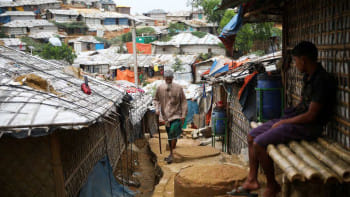
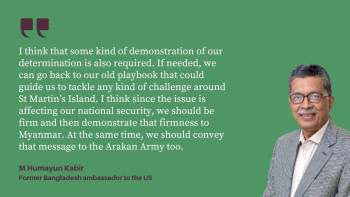
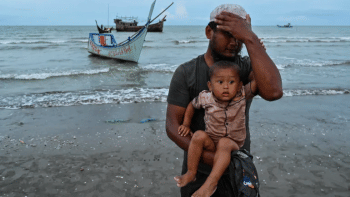


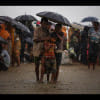
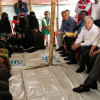



Comments